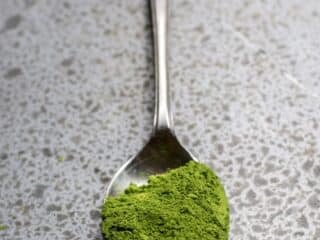The popularity of kratom (Mitragyna speciosa) as a source of energy, concentration, and relaxation has soared in recent years, and there are even resources online to help people learn more about Kratom and guides to help them choose the best strain for their individual needs. Although it has been in extensive use by communities across South Asia as part of traditional medicine, it has only recently captured the attention of the West. Despite its recent introduction, you can easily find kratom for sale online from several vendors across the US.
Naturally, kratom has its fans and opponents. Its fans swear by its remarkable benefits and downplay any potential side-effects it can have. At the other end of the spectrum, its opponents don’t hesitate to tag it as a recreational drug and have it banned.
The truth is somewhere in between!
kratomlounge.com discusses some of the common notions about kratom and clarifies, whether they are facts or fiction. Let’s get started.
- Truth or Myth: Kratom is primarily used to get high?
No.
Research indicates research indicates that as much as 91% of the users use kratom for pain relief, 67% for anxiety, and 65% for depression.
Only a tiny percentage of kratom users rely on kratom to get “high.” That is not its purpose.
- Truth or Myth: Kratom usage can lead to overdose and death like opiates?
Myth.
The truth is that there are potential side-effects of using kratom. These include constipation, anorexia, dry mouth, discolored cheeks, increased urination, itching, insomnia, nausea, and sweating. All of these are mild symptoms that are not fatal or even damaging to the user in the long-term, unlike the overdosing symptoms of opiates.
That said, kratom users should start with small doses and build their tolerance over time to prevent such side effects.
- Truth or Myth: Kratom shows up on a probation drug test?
Half-truth.
There are different types of probation drug tests, ranging from 5-panel to 12-panel tests, among which the 12-panel test is the most in-depth test. It looks for 12 different types of drugs, and kratom isn’t one of them. So, kratom does not show up in your probation drug test.
However, you should know that there are tests for detecting kratom use. Also, probationers and parolees are not allowed to consume any psychoactive substance, including alcohol. If your probation officer has reason to believe that you are using kratom, they can especially order a more comprehensive drug test, which may detect kratom in your system.
- Truth or Myth: Kratom is not addictive at all?
Myth.
That’s right. Although kratom enthusiasts often like to proclaim that kratom is not addictive at all, it is known to be addictive.
To be fair, kratom’s addictiveness is nowhere near to that of opiates, methamphetamines, and other drugs. Kratom’s addictiveness is similar to that of coffee. That’s hardly surprising when you consider that the kratom herb belongs to the coffee family.
Moreover, scientific studies of kratom use have observed dependence in only a small percentage of users. Even then, the withdrawal symptoms are similar to coffee, rather than opiates or other more potent drugs.
So, kratom can be as addictive as coffee.
- Truth or Myth: Kratom is illegal in the US?
Half-truth.
Kratom is banned in several states across America, and more states are working on legislation to follow suit. Even in some states where it is legal, local counties and municipalities have prohibited kratom.
However, there is no blanket ban on kratom across the US. Despite some intense political pressure, DEA has not banned kratom. It is also not prohibited under the Federal Controlled Substance Act.
If you are traveling with kratom on you, then make sure that kratom is legal in all the states you drive, even if you are merely passing over. If it’s illegal in any jurisdiction on your way, then it’s best if you do not carry it on you. Stay on the right side of the law.
Conclusion
Using kratom is not without its complications, but its benefits far outweigh its potential drawbacks. More importantly, when used with proper care, kratom can be immensely beneficial in terms of pain relief, relaxation, improved focus, and more. That doesn’t mean you must believe every good or bad thing you come across about kratom. Do your research and know what’s the truth and what’s a myth.







